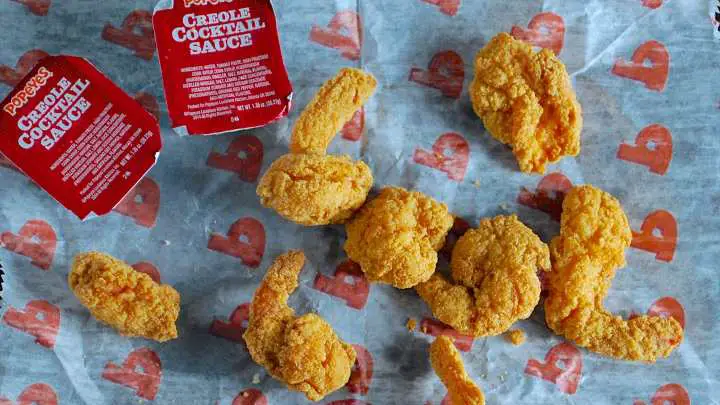Soy sauce has been around for centuries and is one of the most popular sauces in the world. It’s a salty liquid made from fermented soybeans and then seasoned with salt.
If you’re a fan of this condiment, I’m sure you frequently ask yourself, “does soy sauce go bad?”
The short answer is yes. Soy sauce goes bad after some time and you need to store it properly if you want it to last longer.
This article will answer all your questions regarding the shelf life of this condiment, how to tell if it’s bad, and how to make it last longer.
What Is Soy Sauce?
Soy sauce is made by fermenting soybeans with wheat, salt, and yeast. The fermentation process causes the sugars in the beans to break down into lactic acid, which gives the sauce its unique flavor.
Soy sauces have a salty, umami flavor that works well with Asian dishes like stir-fries and dipping noodles. You can also use them as an ingredient in soups and stews or as a marinade for meat.
There are two main types of soy sauce available on the market today: light and dark. Light soy sauces are called “light” because they’re lighter in color than dark soy sauces. They also contain less salt than their darker counterpart, so they work well with foods that have mild flavors.
SEE: What Is The Difference Between Soya and Soy?
Does Soy Sauce Go Bad?
Yes, it does. However, because of its long fermentation process and high salt content, soy sauce can last for a very long time.
To extend the shelf life of this sauce, store it in a cool, dry place out of direct sunlight. You should also make sure that you close the lid tightly after each use, to prevent excess moisture from entering the container.
If you want to keep your sauce fresh for longer, consider refrigerating or freezing it in an airtight container. This will prevent it from losing its flavor over time and ensure that you have fresh-tasting sauce whenever you need it.
SEE: The Delicious Chinese Foods Ming’s Garden Menu Offers
What Is the Shelf Life of Soy Sauce?
The shelf life of soy sauce will vary depending on the brand you purchase. Some brands have a longer shelf life than others due to their packaging or storage conditions during manufacturing.
In general, unopened soy sauces can last for up to 2 years past their best-by date in the pantry and up to 3 years past their best-by date in the fridge or freezer. Once opened, soy sauces can last for up to 1 month in the pantry and up to six months in the fridge or freezer.
Can You Eat Expired Soy Sauce?
You can eat expired soy sauce, but it will be more sour and salty. If you’re using it as a condiment, it probably won’t make much difference. But if you’re cooking with it, the overall flavor profile of your dish might change.
If you’re not sure whether your bottle of expired sauce is still good, inspect it closely before using it. If there are any signs of spoilage (such as mold or off-odors), throw the bottle out immediately.
SEE: Here’s How You Can Turn Food Scraps Into Food
How to Tell if Soy Sauce Is Bad
Sour smell
The best way to tell if your sauce has gone bad is via smell. If it smells sour (like vinegar) instead of sweet and salty, discard it. If it smells musty, that’s a sign that it’s spoiled as well.
Taste change
If the flavor of your sauce tastes different from usual, throw it out immediately. This may indicate that harmful bacteria have grown inside the bottle and spoiled the contents inside.
Cloudiness or discoloration
If there are any signs of cloudiness or discoloration in your sauce, throw out the bottle immediately. This could mean that the contents have become contaminated with harmful bacteria like E. coli or salmonella — not something you want to risk eating.
Mold
If you open your sauce and notice mold on the surface, toss it out immediately. Moldy food is not safe to eat because it can cause cancer and other health diseases.
SEE: Grocery Shopping Tips and Tricks You Need to Know
How to Preserve Soy Sauce
Keep the lid tightly closed
The best way to protect your sauce from bacterial growth is by keeping the lid tightly closed when not in use. You should also keep it away from foods that may go bad quickly (such as dairy products).
Store in a cool, dark place
To store your sauce appropriately, keep it in a cool, dark place, away from heat sources, direct sunlight, and moisture. These factors can cause the sauce to change its texture and go bad over time.
Store it in the refrigerator
If you want to preserve your sauce for a longer period, refrigerate it. Just be sure to transfer it into an airtight container before refrigerating to prevent bacterial growth. This way, you can refrigerate your sauce for years without changing the taste or quality of the product.
Store it in the freezer
The easiest way to freeze your sauce is to pour it into an airtight container and place it in the freezer. When you are ready to use the frozen sauce, simply thaw it in a sink full of warm water or under running water.
You can also fill an ice cube tray with the sauce and place it in the freezer until solid. Once frozen, transfer the soy cubes to a freezer bag and store the bag in the freezer until you’re ready to use it.
When ready to use, remove one or two cubes at a time and allow them to thaw at room temperature before using in any recipe.
SEE: These Companies Will Pay You to Eat Food
FAQs
Can you fry food with soy sauce?
Yes, you can. But you should know that soy sauce does not have the same properties as regular cooking oil. Because soy sauce is so salty, it will draw out the moisture from whatever you’re frying and cause it to dry out.
If you want to fry with soy sauce, make sure that your food is cooked thoroughly before adding it to the pan. Also, add some water to prevent the drying and burning of food during frying.
What is the purpose of soy sauce in a meal?
The purpose of soy sauce in a meal is to add a savory umami flavor to it. This enhances the taste of other ingredients in the meal without overpowering them.
Soy sauce also helps create a nice brown crust on fried foods, which is why so many people use it as a dipping sauce for their favorite fried chicken dish.
Is soy sauce high in sodium?
Yes, it is. Soy sauce is naturally high in sodium, so you should use it sparingly if you’re watching your sodium intake. A single tablespoon contains about 1,000 milligrams of sodium, which is about 50% of the daily limit recommended by the American Heart Association.
What can you use instead of soy sauce?
Fish sauce. This Southeast Asian condiment is made from salted fish (usually anchovies) that have been fermented in water for months or years.
Fish sauce has a salty, umami taste that makes it an excellent alternative to soy sauce. Just be sure to shake it well before using it so it doesn’t settle at the bottom of your bottle.
Can you eat soy sauce every day?
Yes, you can. Soy sauce has a distinctive taste that pairs well with many foods, including stir-fries and stews. However, keep in mind that it is high in sodium (around 1,000 milligrams per tablespoon) which can put a strain on your heart.
Conclusion
Ultimately, soy sauce will go bad. However, it will last for at least 2 years after its expiration date if you store it properly.
Signs that your soy sauce has gone bad include a change in smell or taste, cloudiness or discoloration, and the growth of mold. If you have any doubts about whether your sauce is still good, throw it out and buy a new bottle.
Thanks for reading.
Visit Cheffist if you are looking for more information on the shelf life of sauces.







